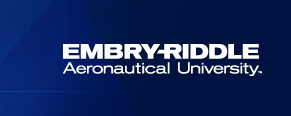Prior Publisher
Embry-Riddle Aeronautical University
Abstract
Public Law 111-216, passed in 2010, has drastically increased the required number of flight hours necessary to become a commercial airline pilot from 250 hours to 1,500 hours in the United States. Intended to increase the safety and qualifications of commercial airline pilots, one possible unintended consequence may be fewer pilots pursuing an airline career due to increased training costs, with no apparent increase in starting salary. The purpose of this exploratory study was to examine consumer perceptions of how much additional pay starting first officers should make based on this new law. American participants from Amazon’s ® Mechanical Turk ® were used to complete an online survey in two separate studies that asked them to determine how much additional pay a pilot should receive, and how much additional fare or fee increases they would be willing to pay to make this happen. The results revealed that participants felt first officers should be paid approximately 36-39% more than they currently make, but they are only willing to pay approximately 16-20% more in fare/fee costs. Three regression analyses were completed using pay raise, fare increase, and average fare/fee increase as criterion variables. No predictor variables were identified for pay raise (F[10, 159] = 1.50, p = .14). Ticket class was determined to be a predictor variable for fare increases (b = .307, t[149] = 4.05, p < .001), and ticket class and income were predictor variables for average fare/fee increase (b = .267, t[149] = 3.59, p < .001, and Income, b = .229, t[149] = 3.07, p < .001).
Scholarly Commons Citation
Winter, S. R.,
Rice, S.,
Rosser, T. G.,
Mehta, R.,
&
Rice, A.
(2014).
Consumer Perceptions of Starting Regional Pilot Pay Given Additional Qualifications.
International Journal of Aviation, Aeronautics, and Aerospace,
1(2).
DOI: https://doi.org/10.58940/2374-6793.1010
